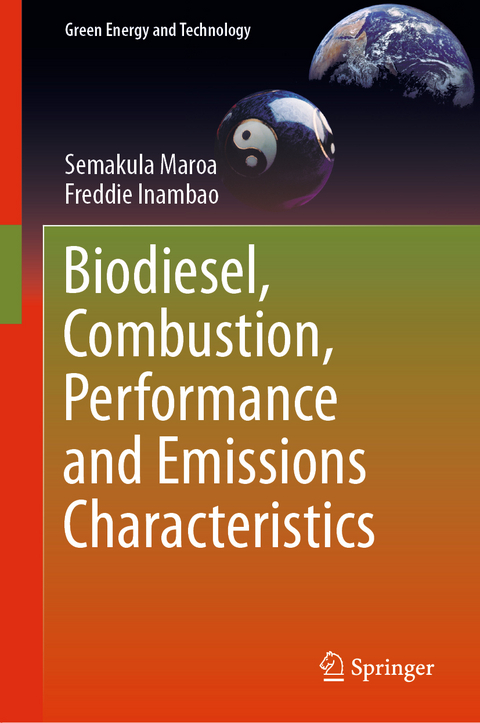
Biodiesel, Combustion, Performance and Emissions Characteristics
Springer International Publishing (Verlag)
978-3-030-51165-4 (ISBN)
This book focuses on biodiesel combustion, including biodiesel performance, emissions and control. It brings together a range of international research in combustion studies in order to offer a comprehensive resource for researchers, students and academics alike.
The book begins with an introduction to biodiesel combustion, followed by a discussion of NOx formation routes. It then addresses biodiesel production processes and oil feedstocks in detail, discusses the physiochemical properties of biodiesel, and explores the benefits and drawbacks of these properties. Factors influencing the formation of emissions, including NOx emissions, are also dealt with thoroughly. Lastly, the book discusses the mechanisms of pollution and different approaches used to reduce pollutants in connection with biodiesel. Each approach is considered in detail, and diagrams are provided to illustrate the points in line with industry standard control mechanisms.
Semakula Maroa received his BT in Automotive Engineering from the University of Eastern Africa, Baraton, Kenya in 1998. He has worked in the transport industry in various capacities for 19 years. He also holds a Master of Science in Engineering from the University of KwaZulu-Natal in Durban, South Africa, where he is currently enrolled as a Ph.D. candidate and research fellow at the School of Engineering, Howard College Campus. He has authored more than 10 publications both in peer-reviewed journals and conference proceedings. His main research interests are in emissions, energy and harvesting renewable energy from waste biomass using thermal processes. Professor Freddie L. Inambao holds an M.Sc. and Ph.D. in Mechanical Engineering with specialisation in thermodynamics and internal combustion engines from Volgograd Polytechnic Institute, Russia. He has lectured at several universities in Southern Africa including the University of Zambia, University of Botswana and University of Durban-Westville (before the merger with the University of Natal). Currently, he is an Associate Professor of Mechanical Engineering at the University of KwaZulu-Natal, Howard College, in Durban, South Africa. He is an expert on thermodynamics, internal combustion engines, renewable energy, alternative energy and energy management systems.
Introduction and Background.- The NOx Formation Routes.- Biodiesels Production Processes and Technologies.- Biodiesel Feedstocks.- Physiochemical Properties of Biodiesel.- Factors Influencing Formation of Emissions in Biodiesel.- The Factors Influencing Formation of NOx Emissions in Biodiesel.- Reduction and Control Techniques in Biodiesel.- Post Combustion NOx Reduction Techniques in Biodiesels.
| Erscheinungsdatum | 14.07.2020 |
|---|---|
| Reihe/Serie | Green Energy and Technology |
| Zusatzinfo | XVIII, 140 p. 43 illus., 23 illus. in color. |
| Verlagsort | Cham |
| Sprache | englisch |
| Maße | 155 x 235 mm |
| Gewicht | 412 g |
| Themenwelt | Naturwissenschaften ► Biologie ► Ökologie / Naturschutz |
| Naturwissenschaften ► Chemie ► Technische Chemie | |
| Technik ► Elektrotechnik / Energietechnik | |
| Technik ► Umwelttechnik / Biotechnologie | |
| Schlagworte | Alternative Fuels • biodiesel • Biofuels • Diesel engines • emissions control • Industrial Pollution Prevention • Internal Combustion Engines • Performance • Regulated Emissions |
| ISBN-10 | 3-030-51165-0 / 3030511650 |
| ISBN-13 | 978-3-030-51165-4 / 9783030511654 |
| Zustand | Neuware |
| Haben Sie eine Frage zum Produkt? |
aus dem Bereich


